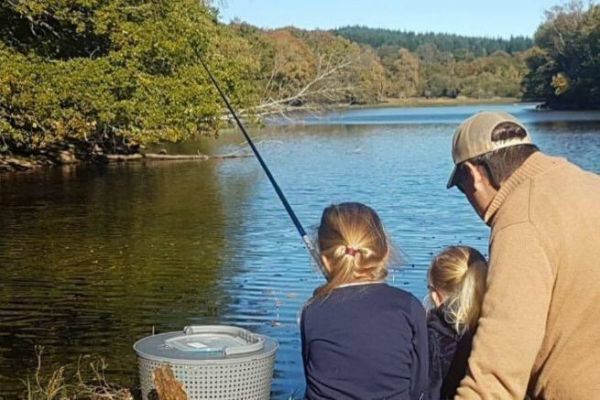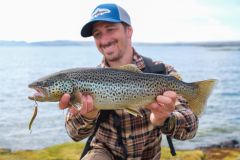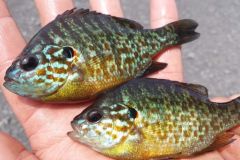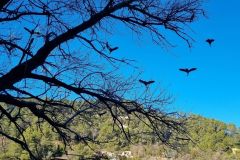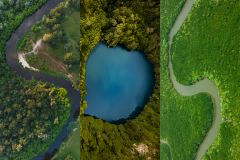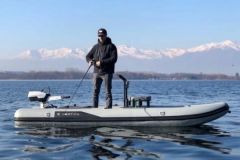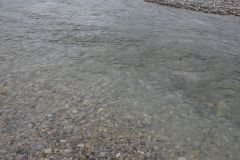Daddy, what's a cormorant?
A cormorant is a bird with the particularity of being migratory, mainly marine and piscivorous. Piscivorous means it eats fish.
Are there many cormorants?
There are many species of cormorant in the world. Here, we have the great cormorant. It's an all-black bird.
And are there many large cormorants?
Yes, a lot, but beware, long before you were born, in the 70s and 80s, it almost disappeared.
Why?
Back then, in Denmark, people collected the eggs. People ate them, but they also wanted the cormorants to be fewer in number and even to disappear. There were only 2000 pairs left. Thanks to the ban on egg collection, we managed to save the species.
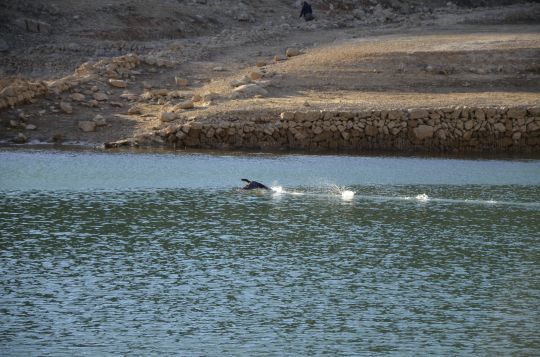
But Dad, are you happy we saved him?
Yes, I'm very happy. Since the 80s, we've understood that it's important to have as much biodiversity as possible in the world, and that all species have a place.
Then why do you always bitch about him?
I'm always bitching about it, because now the population is too big. There are almost 400,000 pairs in Europe and they come into the rivers and lakes to eat the fish.
If he comes to the rivers and lakes, maybe there's a reason? Could it be because the fishermen are releasing fish and that makes him want to?
Unfortunately, that's not the reason. If it only came to the re-stocking areas, it would be less serious, but it even comes to areas where we don't re-stock and where we practice patrimonial management.
What is asset management?
We'll see about that another day. This time, enough about cormorants!
So why is he coming?
He comes mainly because he has less to eat at sea. Overfishing is reducing the resource. Humans are unreasonable, so cormorants have less to eat. So, more cormorants, less to eat, they leave their natural habitat zones to go where they're not expected.
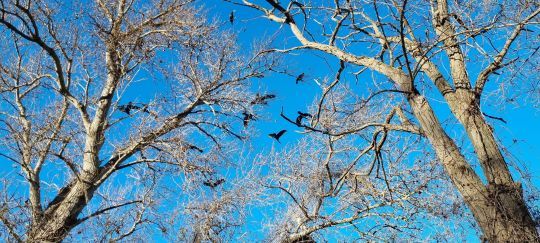
But can't fish defend themselves?
You know, the cormorant is adapted to fishing in the sea, where the fish are sometimes very deep and swim very fast. He had to learn to swim very fast too, for a very long time. He has become very agile. Far too agile for lake and river fish.
And does the cormorant have predators?
The cormorant's main predator is the killer whale, so it has become accustomed to defending itself against them. Just imagine, in a river or lake, he's not afraid of anything. Nothing scares him. He never comes across an orca. He has another predator, the white-tailed eagle, but unfortunately, there aren't many eagles left. Because of man, they're missing from the food chain. It used to be the super predator.
So it's because of the cormorant that you say fish are endangered?
No, he's the last straw. The most important problems are climate change, water scarcity and warming, and pollution, but we'll talk about those another time. The cormorant is yet another factor adding to an already stressed environment, tipping certain species towards extinction.
So why do you want to kill cormorants?
I don't want to kill cormorants! I want to regulate and scare cormorants. I want there to be fewer of them, and I want them to return to their natural habitat. You know, when we say we want to regulate cormorants, you mustn't think that everyone's going to pick up guns and shoot in all directions. These people are trained, certified and supervised. You mustn't think that they're monsters, with drool on their lips and knives between their teeth. They have to take a training course to be able to hunt, the prefect has to give them authorization and they have to report before they go out and report when they come back. You know, it's not so easy to touch them, it's mostly to scare them into returning to their zones.
All species have a place, the cormorant does, but so do we. Our place, our role, is perhaps to participate in the management of other species. To play this role, we need to be moderate, thoughtful and balanced, but above all, we need to look the world in the face.

 /
/ 